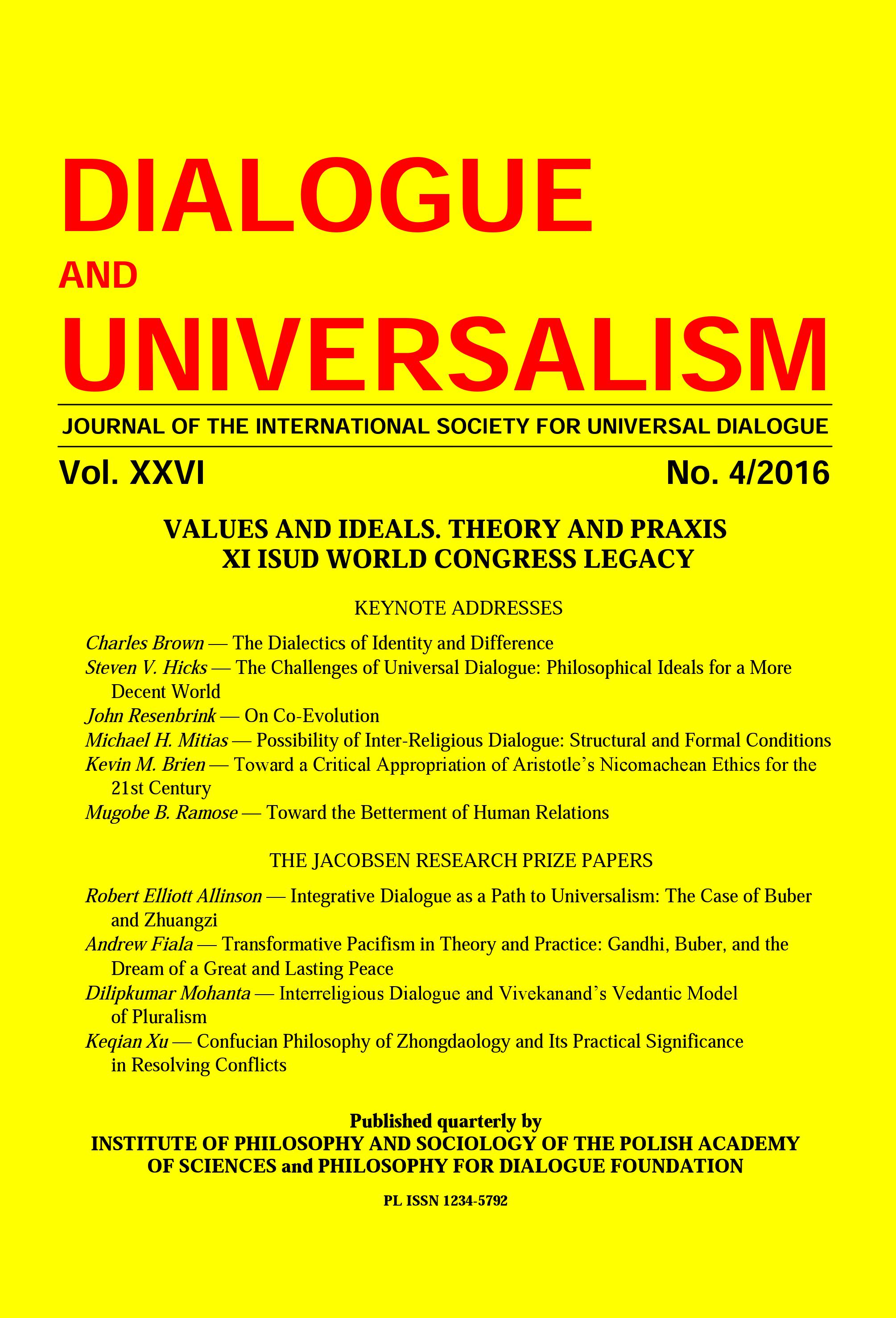THE VALUE OF CONVERSATIONAL THINKING IN BUILDING A DECENT WORLD: THE PERSPECTIVE OF POST-COLONIAL SUB-SAHARAN AFRICA
THE VALUE OF CONVERSATIONAL THINKING IN BUILDING A DECENT WORLD: THE PERSPECTIVE OF POST-COLONIAL SUB-SAHARAN AFRICA
Author(s): Jonathan O. Chimakonam, Uti Ojah EgbaiSubject(s): Philosophy, History of Philosophy, Philosophical Traditions
Published by: Instytut Filozofii i Socjologii Polskiej Akademii Nauk
Keywords: conversation; African philosophy; post-colonial; conversational thinking; democracy; law; decent world; transformation
Summary/Abstract: In this paper we focus on conversational thinking to demonstrate the value of public reasoning in building a decent world and true democracies. We shall take into account the views of selected scholars, especially John Rawls and Jürgen Habermas, on law and democratic practice, to explain why post-colonial Africa is weighed down by socio-political hegemonies that have aversion to their opposition and eliminate room for strong institutions, rule of law and human rights. In light of conversational thinking, this eliminates any chance for “creative struggle,” i.e. a philosophers struggle against the post-colonial imaginary/social agents to dethrone strong individuals and create strong institutions. In the absence of these indices which a conversational orientation may engender, it is difficult to transform bogus democracy into true democracy and thus to create a decent society. Post-colonial Africa mired in social regression, political crisis and economic stagnation urgently needs conversational tonics to overcome the ineffec-tiveness of bogus democracy. We postulate a thesis about three structural transfor-mations forming what we call Democratic Transformational Programme (DTP).
Journal: Dialogue and Universalism
- Issue Year: 2016
- Issue No: 4
- Page Range: 105-117
- Page Count: 13
- Language: English
- Content File-PDF

